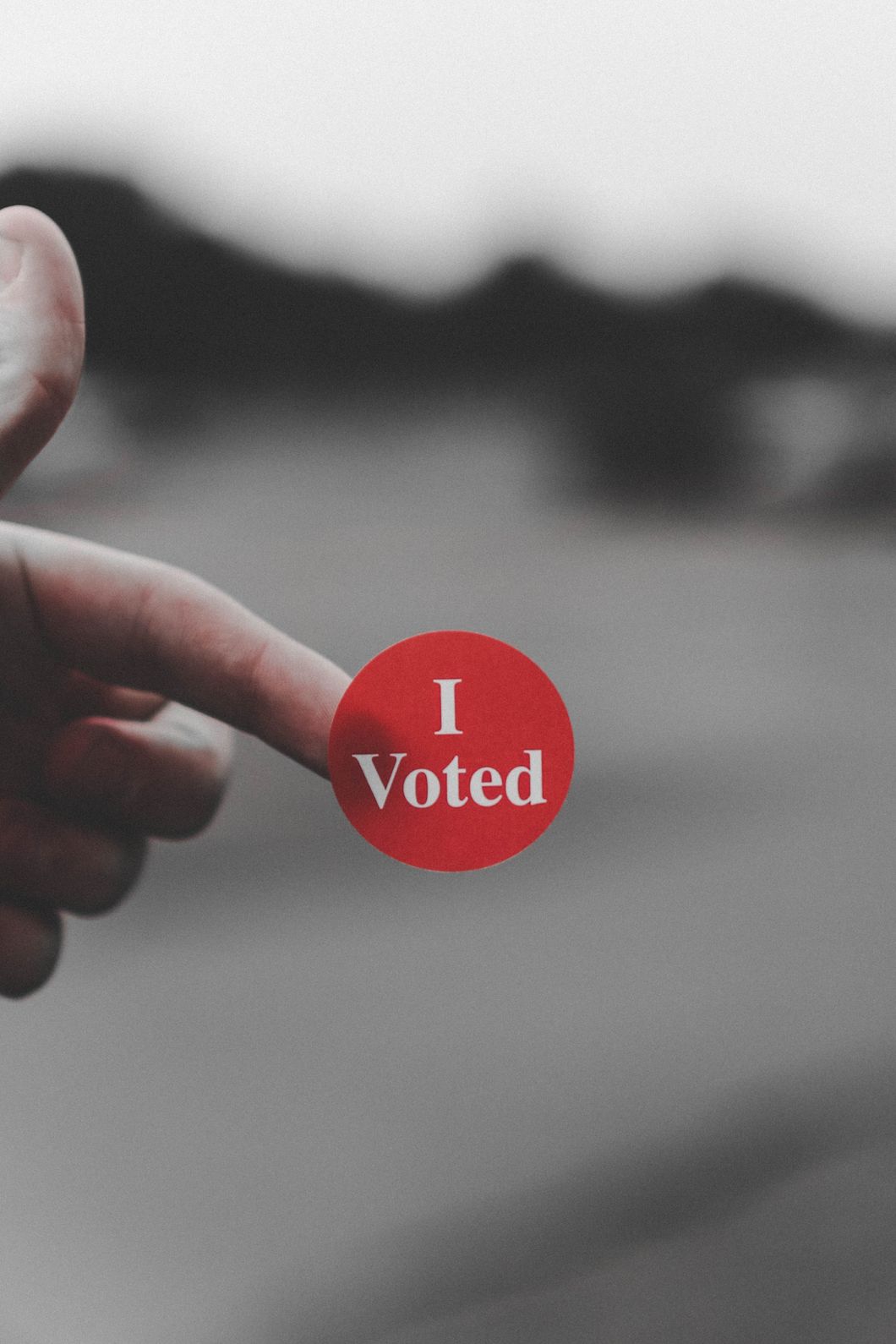Let's face it. The United States is in an utterly catastrophic whirlwind of political controversy and polarization. It has been like this for quite some time now, and this status quo definitely will not disappear as soon as certain people are in or out of office. But we can only accomplish so much by sitting around and complaining (or Tweeting). In fact, we barely accomplish anything at all without acting within our democracy to voice our opinions.
Reading headline after headline and way too many social media posts about those dissatisfied with the government, or causing problems within it, we may ask ourselves why this country is the way it is today. Well, let's look at the structure of the government in the first place. The government was meant to be made "of the people, by the people, and for the people." (Thanks Lincoln.) Since the government is made for the people, that means we should be led by those who are voted for and elected to represent us.
That means we must VOTE. The fourth Tuesday of September is national voter registration day in America, but every day out of the year we possess the right and privilege to vote as American citizens. Our ability to vote is what James Madison described to be "very justly regarded as a fundamental article of republican government" in his Federalist Paper #52. Believe it or not, the voting-eligible population that actually participates in elections is never up to 100%. For example, in the 2016 presidential election, millions of Americans who are able to vote did not cast their ballots on election day. The voting rate was only 61.4%. What is even more upsetting is that that was the voting rate in a presidential election, which historically has the highest voting rates out of all elections. That means even fewer people vote in state and local elections. The decisions of our local government officials, state representatives, and Senators also affect our daily lives, so it is essential that we participate in these elections as well. Having such shockingly low voter turnouts means that not everyone's voice is heard or opinion is expressed.
By looking to data accumulated by voting trends in the past century, we are able to see what parts of the voting eligible population of the United States vote, and what parts do not. The youngest portion of the voting population, ages 18-29, has historically had the lowest rates of voter turnout. This is shocking when compared to how great people in that age range seem to be concerned and affected by political matters. Maybe people do not vote because they are not completely educated on the candidates and issues, or may feel they are too busy to go to the polls or have some other reason. A very common reason why people neglect to go to the polls on election day is that since so many people are voting, their vote "won't count." This is completely untrue- seeing what a large fraction of the population does not vote, and considering how the results of elections could be shifted if all of these people did vote, your vote certainly would matter. Your vote always matters. There are always a million reasons not to do something, but there are plenty of good reasons why you should cast your ballot this November if you are eligible.
If you are worried about the future of this nation being in the hands that can harm it, vote. If you have strong support for a candidate, party, or issue, vote. If you would like to honor the millions of people who have died to protect and serve this country to secure and protect your right to vote, vote. If you want to see change happen, and be a reason behind it, vote. We live in a world full of what seems like endless distractions, but we must recognize that there are still people in the world today who do not have the fortune to live under a democracy or have the right to vote at all. We owe it to ourselves and our country to exercise our rights that we are so lucky to have.
If you are not sure about how to vote, you can look up the seats up for election in your area, the candidates, and their platforms online. This information can be accessed by going to your state's board of election website, the websites of the political parties, and the candidates' campaign websites. Be aware and take notice of what the parties and candidates have discussed in political debates, in interviews, and what their published platforms are. You can look up your voter registration status and register to vote here: https://www.usa.gov/register-to-vote. If you are going to college out of state (like me!) you can also go to your state's board of elections website, and get sent an absentee ballot. It only takes two minutes to register for one, but you need to do it on time to get your vote to count!
Remember, as Abraham Lincoln once proclaimed at the Republican State Convention of Illinois, "The ballot is stronger than the bullet." Participate in democracy and in history this November and VOTE.



 StableDiffusion
StableDiffusion
 full parking
StableDiffusion
full parking
StableDiffusion


 Photo by
Photo by 
 Photo by
Photo by  Photo by
Photo by 









